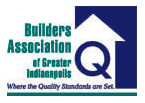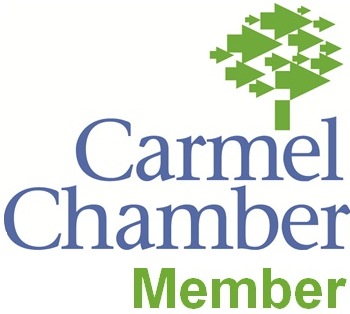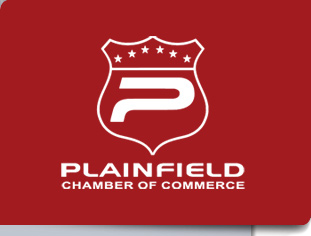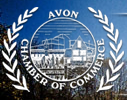Association Waived Right to Enforce Declaration
Loch ‘N’ Green Village Section Two Homeowners Association, Inc. v. Murtaugh, No. 02-12-00094-CV (Tex. App. May 30, 2013)
Covenants Enforcement: A Texas appeals court affirmed a trial court’s order that certain lots specifically excluded from the association’s declaration could not be compelled by the association to become members or pay assessments.
Lake Interlochen is a subdivision in Arlington, Texas, containing two water reservoirs. The Lake Interlochen Homeowners Association (Interlochen) is responsible for operating those reservoirs.
In 1980, Coventry Southwest, Inc. (Coventry) purchased almost 50 acres of land near one of the reservoirs. Coventry proposed to enlarge the reservoir by storing additional water on Coventry’s parcel. Interlochen objected to the proposal, and litigation ensued. The parties agreed to a settlement in which Interlochen agreed to the reservoir expansion.
In exchange, Coventry agreed to establish the Loch-N-Green Homeowners’ Association (Loch-N-Green HOA) and to require those who purchased property there to become members of the Loch-N-Green HOA. The settlement agreement also provided that Loch-N-Green HOA would make a pro rata contribution (proportionately according to a certain rate, percentage or proportion) for the cost of maintaining the reservoir and the upstream dam. Further, Coventry agreed that the settlement agreement was a covenant running with the land, which would bind its successors and assigns in title to its property. A plat for Loch ‘N’ Green Village was recorded, but Coventry never developed the land. Ownership of the property changed several times.
In 1986, six lots in Loch ‘n’ Green Village—lots 27 through 32 of Block 2—were sold to Terra-One Partnership. These six lots were sold to individual home buyers. Some of the remaining Coventry property was eventually acquired by JMH Investments, Inc. (JMH).
In 1993, JMH recorded a declaration of covenants, conditions and restrictions against its property (called the “Addition”), which expressly did not include lots 27 through 32 of Block 2. The declaration established Loch ‘N’ Green Village Section Two Homeowners Association, Inc. (association) and mandated that lot owners in the addition pay annual assessments to the association. The declaration also contained use restrictions and acknowledged the association’s obligation to share in the costs of the dam and reservoir maintenance pursuant to the settlement agreement with Interlochen.
JMH proposed privatizing the streets in Loch ‘N’ Green Section Two subdivision. Through letters sent to the owners of lots 29 and 39 in August 1993, JMH expressed that such owners would not be compelled to join the association, but could do so if they desired.
Sharon Murtaugh acquired lot 27 in 1999. Pamela Johnston purchased lot 30 in 2003. Connie Ragsdale bought lot 28 in 2006. Eileen and Russell Greene purchased lot 32 in 2007. (Murtaugh, Johnston, Ragsdale and the Greenes are collectively referred to as the “defendants”). The deed to each of these lots provided that the property was subject to any and all recorded restrictions and covenants. None of the deeds expressly referenced the association or stated that the lot was subject to the declaration.
In 2010, a dispute arose between the association and the defendants over parking restrictions. The association sued the defendants, alleging they had refused to comply with the declaration terms and had failed to pay association assessments. The defendants counterclaimed, seeking a determination that their lots were excluded from mandatory association membership and not bound by the declaration. The defendants maintained that they had reasonably relied on the association’s inaction to enforce the declaration over the years, thereby extinguishing any of their alleged obligations to the association.
The association argued that the defendants cannot assert that they are not subject to the declaration since each defendant signed a planned unit development rider (a provision added to ownership documents) as part of its mortgage. By signing the rider, the defendants acknowledged that their lots were part of the Loch ‘N’ Green planned unit development. The association also asserted that the defendants were required by either the restrictive covenant or equitable servitude (land use restriction which may be enforced in equity) to become members of the association based, in part, on the settlement agreement between Interlochen and Coventry.
The trial court granted summary judgment (judgment without a trial) to the defendants, stating that membership in the association was voluntary for the defendants and they were not required to fulfill any member responsibilities to the association. The association appealed.
The appeals court concluded that the declaration and each amendment to the declaration clearly showed an intention to regulate only property within the addition, which expressly excluded the defendants’ lots. JMH never owned the defendants’ lots and, therefore, would not have had the authority to impose the declaration on such property. The declaration also contained restrictions and obligations beyond those in the Interlochen settlement agreement. Moreover, no attempt had been made to enforce any restrictions against the defendants’ lots for nearly 15 years.
Even if there was a rationale for finding that the declaration had applied to the defendants’ lots, the appeals court concluded that the association had acquiesced in such substantial violations of the declaration with respect to defendants’ lots that it waived any right to enforce the declaration. The waiver may be proved by inaction for a period long enough to show an intention to yield a known right.
The trial court’s order to grant summary judgment was affirmed.
Association Didn’t Unreasonably Restrict Owner’s Easement Rights
Northwest Properties Brokers Network, Inc. v. Early Dawn Estates Homeowners’ Association, 295 P.3d 314 (Wash. Ct. App. Feb. 20, 2013)
Miscellaneous Association Operations: A Washington appeals court reversed a trial court ruling that an association had unreasonably restricted the easement rights of an adjacent property owner when it denied him a key to the access gate control box.
Early Dawn Estates is a residential community in Yacolt, Wash., and is managed by Early Dawn Estates Homeowners’ Association (association). In 2000, Frank Fredericks purchased property adjacent to Early Dawn Estates, which he subdivided into four lots. He retained one lot and sold the other three. The only way Fredericks could access the nearby public road from his property was via Northeast 159th Avenue (159th), a private road located within Early Dawn Estates. When he purchased the property, Fredericks obtained a nonexclusive easement for ingress, egress and utilities along 159th.
Early Dawn Estates’ covenants, conditions and restrictions (declaration) require that association members pay for the upkeep of the private roads within Early Dawn Estates through roadway maintenance assessments. Approximately 80 percent of the association’s road maintenance expenditures were for 159th.
The county required Fredericks to create a separate road maintenance agreement as a condition of his subdivision’s approval, which also requires the four lot owners to contribute toward the maintenance of 159th. Under the agreement, the lot owners could meet their obligations by (1) performing maintenance on 159th themselves, (2) paying contractors to perform the maintenance or (3) paying association fees for road maintenance. Fredericks initially paid the association’s $250 annual road maintenance assessment, but he later stopped paying because he didn’t believe that he should be required to pay the same rate as association members. Fredericks did on occasion, however, perform or pay contractors to perform some additional road maintenance.
A security gate spanned 159th at the time Fredericks purchased the property. The gate could be opened in four ways: (1) residents could open the gate remotely from their vehicles; (2) residents count enter an access code into a keypad by the gate; (3) guests could call an owner who could open the gate remotely; or (4) the power could be turned off at the gate’s electrical panel.
After burglars discovered how to turn off the power at the electrical panel, the association installed a lock on it and gave keys to only a few people. The association established gate-opening guidelines, which provided that the access gate could be left open only upon prior authorization by a board member or designated representative. It was within the board’s sole discretion to grant requests that the gate be left open.
Fredericks requested a key to the electrical panel, but his request was denied. In 2010, he asked the association on multiple occasions to leave the gate open. Although the association granted his first two requests, it denied his subsequent requests because he failed to comply with the association’s gate guidelines.
Fredericks sued the association, asserting that refusal to give him a key to the electrical panel constituted unreasonable interference with his easement rights. He petitioned the court to require the association to provide him with a key. He also requested that the court determine that he was not required to pay the association’s road maintenance assessments.
The association counterclaimed that Fredericks had been unjustly enriched by its past maintenance of 159th and sought a judgment of $960 and a ruling requiring Fredericks to pay the same annual road maintenance assessment as association members.
The trial court ruled in Fredericks favor, finding that even though Fredericks was responsible for paying his fair share of road and gate maintenance costs, he was not required to pay the same amount as association members. The trial court held that the association had unreasonably restricted Fredericks’ easement rights by denying him a key to the gate’s electrical panel and that he was entitled to leave the gate open as he deemed necessary, provided he place an “Event” sign at the gate when he left it open. The association appealed.
The appeals court analyzed the gate’s original purpose at the time the easement was created; the court also studied the nature of the property subject to the easement and the manner in which the road has been used and occupied. The appeals court determined that the association had implemented reasonable measures to accommodate changing conditions when it became clear that the gate, as it was being operated, did not provide adequate security for the subdivision. Denying Fredericks the ability to leave the gate open at will did not preclude him from opening the gate altogether because the gate could still be opened by other reasonable methods. There were also no legitimate health or safety concerns resulting from the locked gate. Therefore, the appeals court found that the trial court had abused its discretion in ruling that the association unreasonably restricted Fredericks’ easement rights in refusing to give him a key to the gate’s control box and requiring him to obtain approval before leaving the gate open for an extended period.
The appeals court reversed and vacated the trial court’s finding that the association had unreasonably interfered with Fredericks’ easement rights.
Insurance Doesn’t Provide Coverage for Lawsuit
Hunt v. Beach Club Condominium Association, Inc., No. 2012AP2197-FT (Wis. Ct. App. June 4, 2013)
Risks and Liabilities: A Wisconsin appeals court affirmed a finding that a condominium association’s directors and officers insurance policy did not provide coverage for a legal suit because the plaintiffs did not seek monetary damages.
In 1989, Dan Hunt and Janet Ziegler-Hunt constructed Beach Club Condominium on property they owned in Chippewa County, Wisc. The Hunts, whose family owns adjacent property, sought to preserve their right to use the beach located on the Beach Club property by including a provision in the condominium declaration which stated that “use of the beach area shall be shared with the Declarant and their family.”
In 2010, the members of Beach Club Condominium Association, Inc. (association) voted to terminate the Hunts’ use of the beach area. They formally amended the declaration on June 7, 2013. The Hunts sued the association, seeking to have their ownership interest (the rights an owner has to a property) in the beach area verified and to establish their rights to use the beach.
The association asked Auto-Owners Insurance Company, the provider of its directors and officers liability policy, to defend the lawsuit. The policy provided: “We will pay those sums the insured becomes legally obligated to pay as damages because of any negligent act, error, omission or breach of duty directly related to the management of the premises.” (emphasis added).
Auto-Owners intervened in the lawsuit, seeking a determination that its policy did not provide coverage for the Hunts’ claims. (Intervention is a procedure by which a third party, not originally a party in the case, claims an interest in and seeks to join the suit to protect his rights). The trial court dismissed Auto-Owners from the suit. The association appealed.
On appeal, the association’s sole argument was that the insurance policy provided coverage for the Hunts’ claims. The dispute revolved around whether the Hunts sought “damages.” The association argued that the policy was ambiguous because it failed to define the term “damages.”
The appeals court noted that, although the Hunts’ claimed several causes of action (a set of facts sufficient to justify a plaintiff’s right to sue the defendant), they clearly sought only one remedy. They alleged breach of contract, seeking “to have their interest in the condominium and real estate declared and made certain.” The Hunts also asserted that the declaration reserved to them ownership interest in the property and stated that they were co-owners of the beach area (listed as tenants-in-common with the association). They further sought judicial clarification of the phrase “beach area” because that term was not defined in the declaration. Finally, the Hunts claimed a prescriptive easement in the beach. (A prescriptive easement is the right to use another’s property in a manner consistent with the owner’s rights, which is acquired by open and notorious use of the land over a continuous period of time set by state law).
The appeals court determined that it was plain the Hunts sought only the right to continue using the beach area. The court explained that prior case law defines the term “damages” in a commercial liability policy as meaning “legal damages”—compensation for past wrongs or injuries consisting of money or something that has monetary value. Here, the Hunts did not seek remedial relief; the desired result was merely the right to use the beach area in the future. Thus, the appeals court rejected the association’s argument that the policy was ambiguous.
The association further argued that coverage should not be denied because the Hunts’ complaint included a request for “costs, disbursements and attorney fees” as their final prayer for relief. The appeals court found that, while prayers for relief commonly found at the end of a complaint may clarify allegations stated elsewhere in the complaint, they are only a small part of a plaintiff’s request. Here, the appeals court determined that the substantive portion of the Hunts’ complaint did not need clarification; it was abundantly clear that they did not seek a monetary remedy for past wrongs. Taken as a whole, the complaint indicated that the Hunts only wanted the right to use the beach area.
The appeals court concluded that Auto-Owners was properly dismissed from the case because the insurance policy did not provide coverage for the claims set forth in the Hunts’ complaint. The trial court’s judgment was affirmed.









